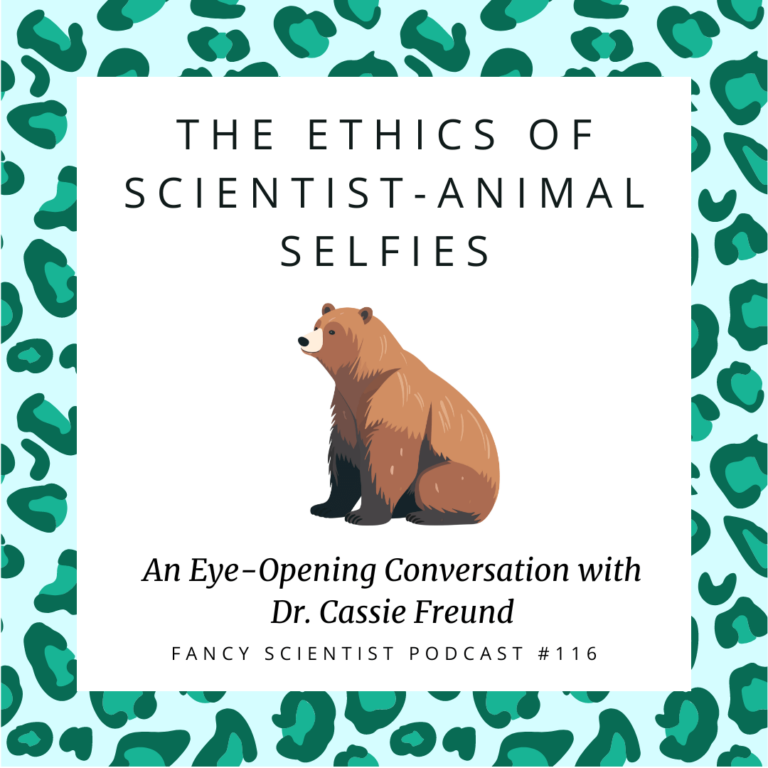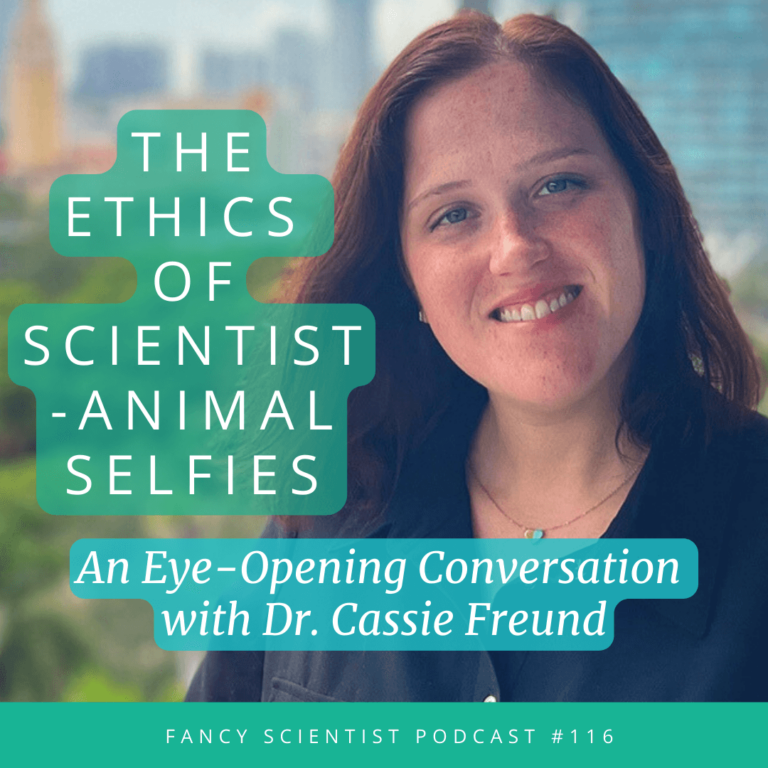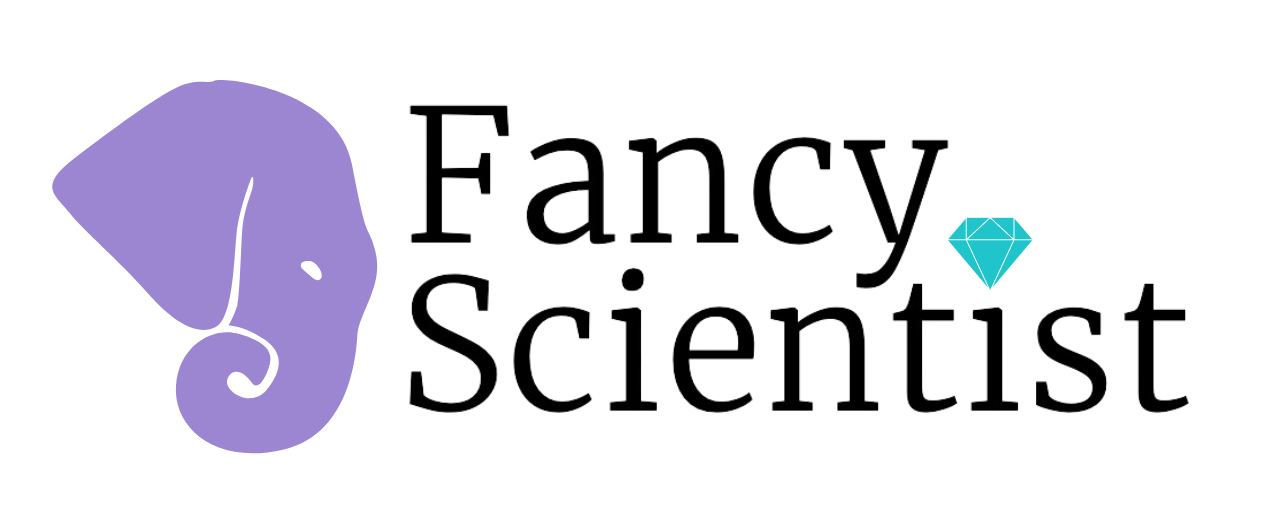As early as the second episode of the Fancy Scientist podcast, I’ve been talking about the negative impacts of “animal selfies.” This refers to when people post photos of themselves with an exotic animal. Although selfies are new in the digital age of photography, photos like these are not. For decades, private zoos and individuals have made money by keeping exotic animals often in horrific conditions and getting people to pose with them for photos. These are most often baby mammals (think tiger, lion, and bear cubs ala Tiger King), but can also be birds, reptiles, and fully adult mammals.
Powered by RedCircle
While operations like these are clearly bad for animals and have nothing to do with conservation once you understand how they work (read Is Cub Petting Conservation for Big Cats?), what’s less clear is when scientists pose with their study species for photos. I totally get it! Being with a wild animal is an amazing opportunity and you want to capture it in a photograph (I am guilty of this myself), but what happens when we share those images?
We’ve all seen those images of researchers posing with their study subjects, and while it might seem harmless, research has shown that this can actually encourage people to engage in unethical or even illegal wildlife interactions. It’s safe to say that this has been a pet peeve of mine for some time. Photos like those are pervasive throughout the scientific community, even when advertising our career to others, and I’ve been trying to spread the word.

A couple of months ago, a story went viral on X (formerly Twitter) where people took wild bear cubs from a tree just for selfies. I tweeted not only about this but about how scientists need to stop posting photos of themselves with wildlife so people don’t get the misconception that it’s ever okay to do something like this. I also emphasized that studies show that photos like those make people want to engage in animal selfies. This tweet gained considerable attention, one of which was from Dr. Cassie Freund, the director of science communication at the Phillip and Patricia Frost Museum of Science in Miami, who tweeted back that that was her research! This fortuitous interaction led me to ask her for an interview in this podcast to talk about her research on scientists taking selfies with animals, especially primates, and how it has been shown to negatively influence public behavior and perceptions, making people less likely to understand the endangered status of these animals.
On this podcast, she discusses the results of her and other studies, which found that even providing captions trying to explain the “proper permissions” obtained to handle animals with research permits and as a professional doesn’t mitigate the negative impact of those kinds of photos on the public. Additionally, Cassie has a fascinating background in primate behavioral research and is a strong science writer and editor with over five years of experience telling engaging stories about the world around them in outlets like Mongabay, Massive Science, and Hakai Magazine.

Cassie’s insights were so valuable, and I know this is a topic that many of you are passionate about as well. I encourage you to share this episode with your scientist friends and colleagues – let’s all do our part to raise awareness and change the narrative around how we present wildlife on social media.
Specifically, we go over:
- Cassie’s background in orangutan conservation and rainforest research
- The surprising findings from her studies on how people perceive images of scientists with their study subjects
- Tips for effective science communication that prioritizes animal welfare and conservation
- Challenges of navigating social media as a scientist who wants to share their work
- Real-world examples of both positive and negative wildlife-related social media posts
- And more!!!
Resources and Sources in The Ethics of Scientist-Animal Selfies
Love this post? Share it with friends!




